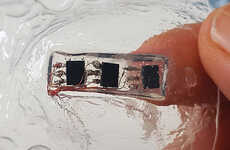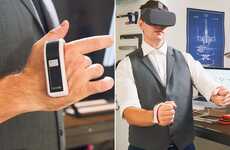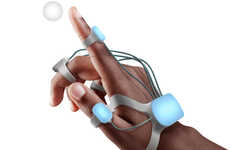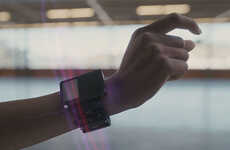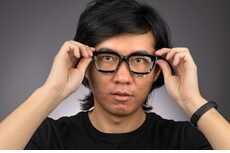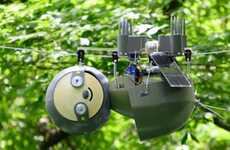
Dots is a System That Can Help Individuals with Disabilities
A new type of gesture-recognition system has been developed by three graduate designers from the Royal College of Art and Imperial College London—y Valentin Gong, Xiaohui Wang, and Lan Xiao. The product has an exceptionally high value for individuals with functional diversities. The system is titled 'Dots' and it was shortlisted for the Dezeen Awards 2020 in the wearable design category.
The gesture-recognition system is composed of two silicone discs that contain sensors that can detect movement between any two body parts and thus perform four basic manipulations in 3D interfaces—selection, positioning, scaling, and rotation.
The best part of Dots is that users can choose how they want to interact with it, based on their physical condition—from positioning the two-point systems on their arms or even under their chin to control with their mouth-movement.
Image Credit: Dots
The gesture-recognition system is composed of two silicone discs that contain sensors that can detect movement between any two body parts and thus perform four basic manipulations in 3D interfaces—selection, positioning, scaling, and rotation.
The best part of Dots is that users can choose how they want to interact with it, based on their physical condition—from positioning the two-point systems on their arms or even under their chin to control with their mouth-movement.
Image Credit: Dots
Trend Themes
1. Gesture-recognition Interfaces - Develop more affordable and accessible gesture-recognition interfaces for individuals with functional diversities.
2. Wearable Technology - Create more wearable technology products that cater to the needs of individuals with disabilities.
3. Customizable Interfaces - Develop more interfaces that users can customize to their physical needs.
Industry Implications
1. Healthcare - Create innovative gesture-recognition systems to help individuals with disabilities in the healthcare industry.
2. Technology - Design new wearable technology products and interfaces for individuals with disabilities using emerging technologies.
3. Academia - Collaborate with academia to create innovative systems and develop new technologies that cater to individuals with disabilities.
3.1
Score
Popularity
Activity
Freshness



